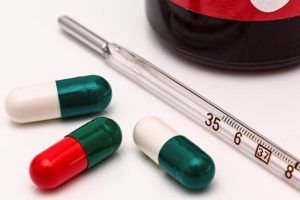 Driving responsibly is everyone’s job, and sometimes steps must be taken to ensure our roads are safe. That’s where a car breathalyzer (ignition interlock device) becomes a necessary tool for safety, especially after a drunk driving conviction. The devices are also tools to ensure an offender gets back on that responsible road. When that offender is taking medications, whether prescribed or over-the-counter, a little more caution must be paid to fully ensure safe driving.
Driving responsibly is everyone’s job, and sometimes steps must be taken to ensure our roads are safe. That’s where a car breathalyzer (ignition interlock device) becomes a necessary tool for safety, especially after a drunk driving conviction. The devices are also tools to ensure an offender gets back on that responsible road. When that offender is taking medications, whether prescribed or over-the-counter, a little more caution must be paid to fully ensure safe driving.
Ignition Interlock devices do not detect medications, only alcohol.
Some liquid medications contain alcohol, the same type of alcohol that is in beer, wine or liquor. While not enough to cause legal intoxication, that amount of alcohol can trigger an interlock test failure if the offender submits a breath sample too soon after taking it. If you take these kinds of medications, be sure you rinse your mouth with water before submitting a test sample.
Even though if taken normally those types of medications cannot cause intoxication, they can cause dizziness or drowsiness, which increase your risk factor on the road. Other medications may produce visual changes, slow reaction times or other problems when driving. Those warning labels that say “do not drive before knowing how this medication will affect you” are not suggestions. You can still endanger others on the road and be charged with a DUI if you are considered to be under the influence of any substance, including medications.
An ignition interlock device makes sure that you are not driving under the influence of alcohol. However, you still have a responsibility to be safe under all other circumstances, whether you’re taking antibiotics or cough and cold medicine. Exercise common sense and be sure that you are never too impaired to operate a vehicle safely. You’ve already been through a drunk driving conviction and the last thing you need is another court date or reckless incident while driving.

 When is an Oklahoma DUI-D Like a DUI? Every Time.
When is an Oklahoma DUI-D Like a DUI? Every Time.